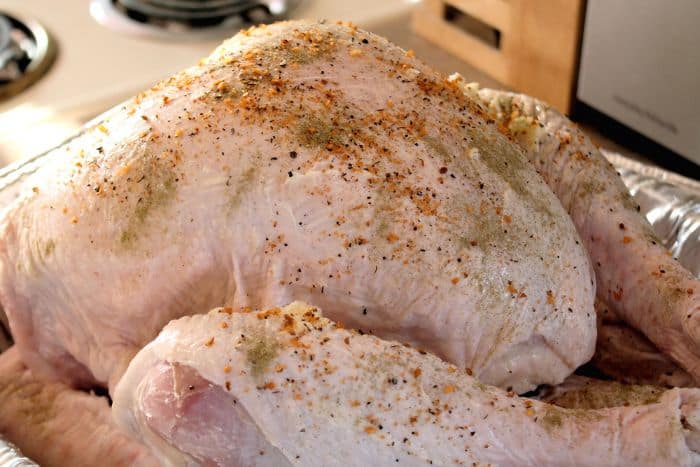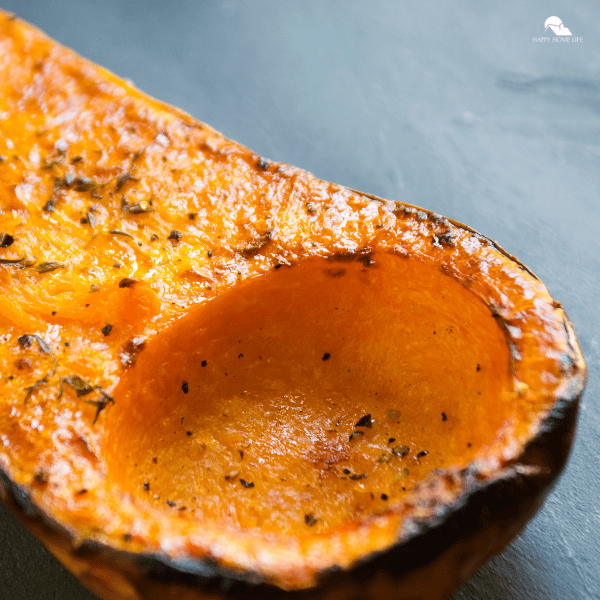Thanksgiving—a time for family, gratitude, and of course, the most delicious feast of the year! While many of us look forward to the mouthwatering sides and scrumptious desserts, the turkey is the real star of the show. But before you can dazzle your guests with your culinary prowess, there’s one crucial step you can’t overlook—figuring out how to store turkey before Thanksgiving.
Today, we’ll delve into the dos and don’ts of turkey storage. Whether you’re a Thanksgiving veteran or hosting your first-ever holiday dinner, this guide will ensure that your turkey is stored safely and ready to be the centerpiece of your festive meal. Because let’s face it, no one wants to remember Thanksgiving as the year of the “turkey mishap.”

Why Proper Turkey Storage Matters
You’ve spent hours researching recipes, made multiple trips to the grocery store, and perhaps even braved the crowds for that perfect turkey. So, the last thing you want is for all that effort to go to waste because of improper storage. Trust me, a spoiled turkey is a surefire way to turn your Thanksgiving feast into a fiasco!
Health Risks
First and foremost, improper storage can lead to spoilage and the growth of harmful bacteria like Salmonella and Campylobacter. These bacteria are invisible to the naked eye and can also be odorless and tasteless. Consuming contaminated turkey can result in food poisoning, which is definitely not the kind of memory you want to create on a day meant for gratitude and togetherness.
Quality and Flavor
Even if your turkey doesn’t spoil, poor storage conditions can adversely affect its quality and flavor. Freezer burn, dehydration, or even cross-contamination with other foods in your fridge can all take a toll on your turkey’s taste and texture.
Buying the Turkey: Fresh vs. Frozen
Ah, the age-old debate: fresh or frozen turkey? While both options have their merits, understanding the differences can help you decide which turkey is right for your Thanksgiving celebration. Let’s break it down:

Fresh Turkey
Pros:
- Flavor and Texture: Many people swear by the superior flavor and juiciness of a fresh turkey. Since it hasn’t been frozen, the meat’s cellular structure remains intact, which can result in a more tender bite.
- No Thawing Required: One of the biggest advantages of a fresh turkey is that you can skip the thawing process altogether, saving you valuable time and fridge space.
- Local Options: Fresh turkeys offer the opportunity to support local farmers, especially if you’re buying from a nearby farm or farmers’ market.
Cons:
- Shorter Shelf Life: Fresh turkeys have a much shorter shelf life, usually around 1-2 days in the fridge. This means you’ll need to plan your shopping trip close to Thanksgiving Day.
- Price: Fresh turkeys are generally more expensive than their frozen counterparts.
- Availability: Depending on where you live, fresh turkeys might be harder to come by, especially as Thanksgiving approaches.

Frozen Turkey
Pros:
- Long Shelf Life: Frozen turkeys can be stored for several months, giving you the flexibility to buy early and avoid the last-minute rush.
- Cost-Effective: Frozen turkeys are usually less expensive, making them a budget-friendly option.
- Wider Availability: You’ll find a broader selection of sizes and brands when opting for a frozen turkey.
Cons:
- Thawing Time: According to the USDA, frozen turkey requires ample time to thaw safely in the fridge—about 24 hours for every 4-5 pounds of meat.
- Potential for Freezer Burn: If not stored properly, frozen turkeys can suffer from freezer burn, affecting the quality of the meat.
- Flavor and Texture: While still delicious, some people find that frozen turkeys are not as flavorful or tender as fresh ones.
The Verdict
Ultimately, the choice between fresh and frozen comes down to your personal preferences, timeline, and budget.
Storing a Fresh Turkey
So you’ve decided to go with a fresh turkey—great choice! Now, let’s make sure it stays that way until it’s time to cook.
Temperature Control
First things first, your fridge needs to be at the right temperature. Make sure it’s set at or below 40°F. This is the magic number to inhibit bacterial growth and keep your turkey fresh.
Packaging
When you bring your turkey home, it’s usually wrapped in plastic. If the packaging is intact and secure, you can leave it as is. However, if there are any tears or leaks, it’s a good idea to re-wrap it in plastic wrap or aluminum foil. This not only prevents cross-contamination but also helps maintain the turkey’s moisture.
Placement
Location, location, location! Where you place your turkey in the fridge matters. The best spot is at the bottom, ideally in a shallow pan to catch any potential drips. This way, you avoid contaminating other foods and keep your fridge clean.
Shelf Life
Fresh turkeys don’t have a long shelf life, so timing is crucial. Generally, you can store a fresh turkey in the fridge for up to two days. If you find out you need to store it for a longer period, consider freezing it (but remember, then it becomes a “frozen turkey” with its own set of storage rules).
Storing a Frozen Turkey
If you’ve opted for a frozen turkey, you’re in luck! These birds come with the convenience of a longer shelf life, but there are still some key points to consider for optimal storage.
Freezer Temperature
First up, make sure your freezer is set to 0°F or lower. This ensures that your turkey remains frozen solid, preventing the growth of bacteria and the onset of freezer burn.
Thawing Time
One of the most important aspects of storing a frozen turkey is planning for thaw time. You’ll need about 24 hours of thawing in the fridge for every 4-5 pounds of turkey. So, if you’ve got a 15-pound bird, you’re looking at a minimum of three days to thaw it safely.
Emergency Thawing Methods
Life happens, and sometimes we forget to plan ahead. If you find yourself in a last-minute thawing situation, don’t panic! You can use the cold water thawing method, which takes about 30 minutes per pound. Just make sure to cook the turkey immediately after it’s thawed using this method.

The Do’s and Don’ts
Alright, we’ve covered a lot of ground, but let’s boil it down to some simple do’s and don’ts. These are your go-to guidelines for turkey storage, whether you’ve chosen a fresh or frozen bird.
Do’s
- Check the Temperature: Always make sure your fridge is at or below 40°F and your freezer is at 0°F or lower. This is non-negotiable for safe turkey storage.
- Inspect the Packaging: Before storing your turkey, check for any tears or leaks in the packaging. If you find any, re-wrap the turkey to prevent cross-contamination.
- Use a Drip Pan: Whether in the fridge or freezer, place your turkey in a shallow pan to catch any potential drips. This keeps your appliance clean and prevents cross-contamination.
- Plan Ahead for Thawing: If you have a frozen turkey, remember it takes about 24 hours in the fridge to thaw every 4-5 pounds. Mark your calendar so you don’t forget!
- Consider Emergency Thawing: If you’re in a pinch, use the cold water thawing method, but remember to cook the turkey immediately afterward.
Don’ts
- Don’t Leave It Out: Never thaw a turkey on the countertop. This puts it in the “danger zone” for bacterial growth.
- Don’t Rush the Thawing: Avoid using hot water or a microwave for thawing, as these methods can be unsafe and uneven.
- Don’t Store Near Ready-to-Eat Foods: Always store your turkey away from ready-to-eat foods to prevent cross-contamination.
- Don’t Ignore the Expiry Date: For fresh turkeys, pay close attention to the “sell-by” or “use-by” date. For frozen ones, try to use within one year for best quality.
- Don’t Forget to Cook Thoroughly: Regardless of whether your turkey is fresh or frozen, always cook it to an internal temperature of 165°F to ensure it’s safe to eat.
FAQs
We’ve covered a lot in this post, but you might still have some questions. Here are the answers to the top three frequently asked questions about storing turkey before Thanksgiving.
1. How Long Can I Store a Fresh Turkey in the Fridge?
A fresh turkey can generally be stored in the fridge for up to 1-2 days. If you’ve bought your turkey well in advance, and it’s still within this window, you’re good to go. Otherwise, you’ll need to freeze it for longer storage, but remember that then it becomes a “frozen turkey” with its own set of storage guidelines.
2. What If I Forget to Thaw My Frozen Turkey in Time?
Don’t fret; you’re not the first to forget, and you won’t be the last! If you find yourself short on time, you can use the cold water thawing method. Submerge the turkey in its original packaging in cold water and change the water every 30 minutes. This method takes about 30 minutes per pound to thaw. Just make sure to cook the turkey immediately after it’s thawed using this method.
3. Can I Refreeze a Thawed Turkey?
Technically, yes, you can refreeze a thawed turkey, but it’s not recommended. Refreezing can degrade the quality of the meat, leading to a loss of moisture and flavor. If you must refreeze, make sure the turkey has been thawed in the refrigerator and not left out at room temperature. Also, aim to cook it as soon as possible after the second thaw to minimize quality loss.
And there you have it, folks! We’ve journeyed through the ins and outs of how to store turkey before Thanksgiving, from choosing between fresh and frozen to mastering the art of safe storage.
Remember, a little planning goes a long way in ensuring your turkey is delicious and safe. So go ahead, give yourself a pat on the back for being so well-prepared this holiday season. Now, all that’s left is to cook that bird to perfection and enjoy a wonderful, stress-free Thanksgiving with your loved ones.






